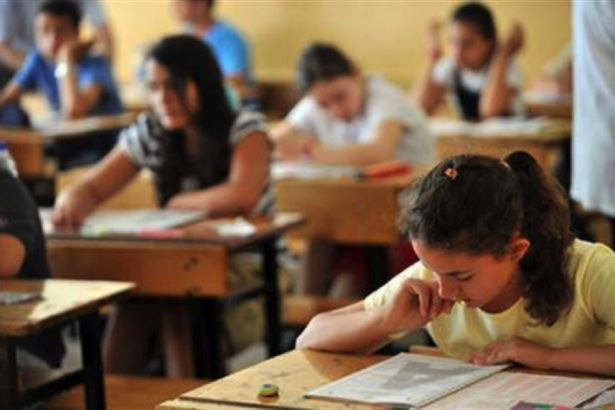Reasons behind removal of high school entrance exam

The removal of the Transition from Primary to Secondary Education (TEOG) exam has overshadowed debates on the new reactionary curriculum. But why was the high school entrance exam was hastily removed in Turkey?
As the new academic year begins with jihadist curriculum debates, the removal of the TEOG has become a new moot point for Turkey’s educational system. The issue of the TEOG seems to clearly overshadow the debates on the current curriculum to a certain extent, as a replacement system has obviously not been decided yet, and the TEOG itself was hastily abrogated due to an order from the Turkish President Recep Tayyip Erdoğan.
The rationale put forward by the ruling Justice and Development Party (AKP) for the removal of the Turkish high school exam is the 'emancipation of children from an exam-based education system', but the practices of the AKP for the last 15 years have shown that this rhetoric is merely an illusion.
When we leave the rhetoric aside and try to understand the real reasons behind the removal of the TEOG, it seems that a few points come to the forefront.
INJECTION OF THE AKP’S MINDSET INTO QUALIFIED SCHOOLS
The first point is a new wave of AKP intervention in qualified high schools. The Turkish government has taken major steps to do so by appointing AKP supporters as administrators to schools, conducting projects under the name of "pilot-schemes" and "project schools," and intervening in teaching staff. Yet, the profile and quality of the students, parents, and alumni in these schools have always prevented AKP hegemony from taking root.
Even AKP supporters say that allowing these schools to hold their own exams for enrollment, as has been suggested by the government following the cancellation of the TEOG, will allow for unchecked nepotism. If such a system replaces the TEOG, AKP members could enrol their children in qualified schools by interfering with school administrations. The possibility of corruption becomes clearer when we look at the point-based rankings in the last year’s TEOG. For example, if we look at the top 10 schools in Istanbul based on these rankings, we can see that these are all institutions where the AKP has not been able to gain acceptance despite all the interventions that have been carried out.
A STATE-LED PROMOTION OF RELIGIOUS HIGH SCHOOLS
Another point to keep in mind regarding the cancellation of the TEOG is the AKP’s promotion of religious high schools in Turkey. In statements regarding potential systems that might be implemented after the removal of the TEOG, the AKP has stated that an “address-based registration system” would be an option for student enrollment. This step has become more understandable when we consider the ‘Ordinance on the Establishment, Closing and Naming of an Institution’ issued by the Ministry of National Education (MEB) in the previous days. With this enactment, the MEB has paved the way for religious high schools to gain even higher attendance, as they are the only type of high school that students can enrol in many districts of Turkey. So, in other words, if there is no exam, then there is no alternative school to be accepted in based on a merit system, and so it is obvious that the authorities will force many children to enrol in religious high schools due to the address-based registration system.
FAILURE OF RELIGIOUS SECONDARY SCHOOLS IN TEOG EXAMS
Lastly, one more reason behind the removal of the TEOG may be the AKP’s assessment that Islamic secondary schools are less successful compared to regular ones. Ultimately, the failure of Islamic secondary schools in TEOG exams might intolerably become apparent, and this would mean a significant loss of prestige these schools. In statistics issued by the Ministry of National Education following the results of the TEOG exam, we do not see any details about analyses based on school types [i.e. a comparison between regular secondary schools and Islamic secondary schools in terms of students’ success]. Statistics announced the results of the university entrance exam in 2017 had revealed that religious high schools failed to show considerable success despite huge government investments and incentives. According to the statistics, only 1 of 5 religious high school graduates get into the university.
If these figures are similar at the secondary school level, it is possible that this failure is one of the reasons behind Erdoğan’s statements on the cancellation of the TEOG.




